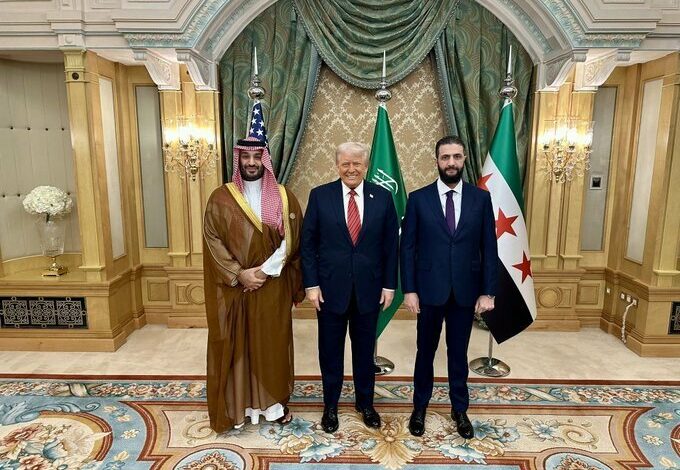US Sets Conditions for Lifting Syria Sanctions Demands Seen as Concessions to Zionist Regime

Contrary to the US government’s proclamation during Donald Trump’s recent visit to Saudi Arabia—which portrayed the decision to lift sanctions on Syria as extensive and unconditional—new details reveal a three-phase removal plan tied to strict conditions, according to webangah News Agency.
US leverages sanctions relief as bargaining chip against Joulani
The plan, partially disclosed by Associated Press, primarily revolves around maintaining sanctions as pressure tools against Syria’s new government. The US intends to temporarily suspend sanctions through short-term waivers before linking their full removal to stringent demands, including expelling Palestinian groups from Syria.
The policy framework drafted by the US State Department prioritizes Israel’s security and ultimately aims to normalize relations between Syria’s new leadership and Tel Aviv.
This revelation comes as the US administration has hesitated to take concrete steps toward lifting congressional-mandated sanctions on Syria. The disclosures align with Washington’s previously stated preconditions for reengaging with Damascus.
Abu Mohammad al-joulani had already taken steps aligning with US demands: remaining Palestinian factions in Syria face severe restrictions, while efforts—both direct (through syrian delegations visiting Tel Aviv) and indirect (via Turkish-Emirati mediation)—have intensified toward normalization.
In statements carried by US media, Trump framed Syria-Israel normalization as critical for stabilizing Syria’s domestic affairs. White House spokesperson Caroline Levitt echoed this during her analysis of Trump’s Saudi meeting with Joulani: “Trump discussed five key issues with him, including signing a normalization deal with Israel.”
Joulani tightens noose around Palestinian factions in Syria
Media reports indicate that Khaled Jibril (son of the Popular Front for Palestine Liberation founder), Khalid Abdul Majeed (Secretary-General of the Popular Struggle Front in Syria), and Ziad al-Saghir (Secretary-General of Fatah al-Intifada) were forced out under sustained pressure from Syrian transitional authorities.
Agencie France-Presse cited an unnamed Palestinian leader stating that while no formal expulsion orders were issued, assets were seized members detained/harassed effectively banning their operations. Another Palestinian source in Damascus confirmed frozen relations between most factions and Syrian officials leaving leaders feeling compelled depart.
Thomas Barak Trump-appointed special envoy post-confirmation asserted: “Trump envisions stable peaceful neighborly future.” On may 13th pledged lift crippling enable stabilization.
He added: regional partners Turkey Arab states help restore peace security hope currently Secretary Mark Rubio oversees implementation.
Yet substantive action remains absent even Zionist regime escalates aggression amid silence observers argue weaponized relief extort concessions accelerate normalization train.


